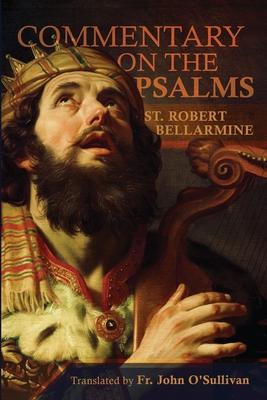A commentary on the book of Psalms by a brilliant Saint. Translated by a Catholic priest.
The meaning of the psalms may be obscure, at times, to modern people. The psalms are incredibly and sublimely rich with a near-infinite wealth of spiritual treasures. Let this Saint help enlighten you to penetrate the Truths expressed therein.
In the early ages of the Church, the Psalms were so familiar to the laity, that it was found impossible to adopt the translation made by St. Jerome from the Hebrew, for all had the older version by heart. The Book of Psalms, in fact, is a sort of compendium and summation of the entire Old Testament, including the prophecies concerning the suffering Messiah; whatever Moses either handed down in history or taught in the Law, and whatever the other Prophets wrote, either exhorting men to virtue or foretelling the future, all of this is contained in the briefest compass in the Psalms of David. The Psalms exhort the listeners to virtue, restrains them from vice, invites, attracts, threatens and frightens them; and all of these things are not simply set down in a narrative, but in various sorts of songs, with poetic phrases and many admirable metaphors, until at last this new form of expression snatches up souls in such love and praise of God, that nothing sweeter, nothing more salutary could ever be sung or heard. Therefore Saint Basil is correct when he writes in his commentary on the first Psalm, that the Psalms of David draw tears even from a heart of stone; and Saint John Chrysostom rightly affirms in his commentary on Psalm 137 that those who sing the Psalms properly lead choirs together with the angels and, as it were, vie with them in the praise and love of God.
